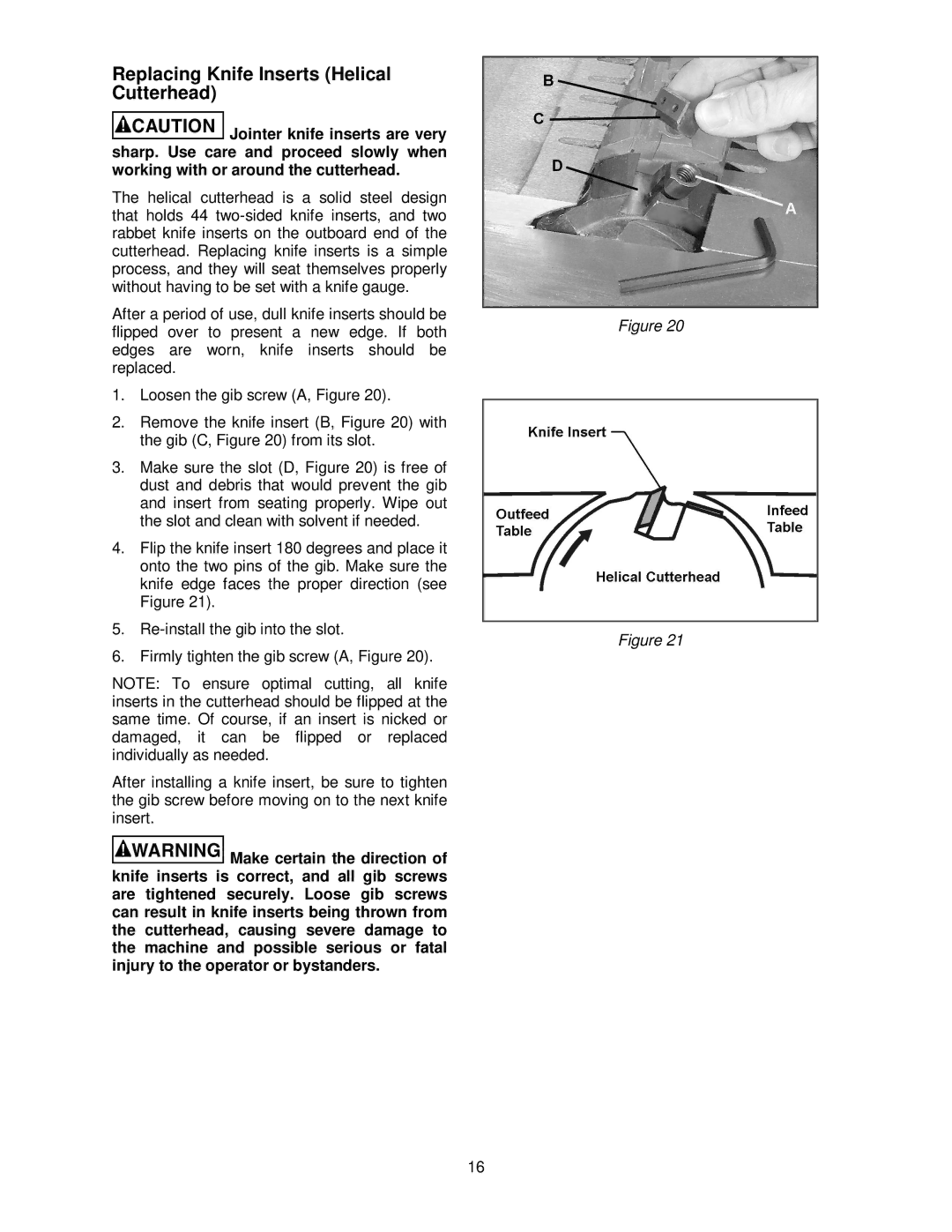
Replacing Knife Inserts (Helical Cutterhead)
![]() Jointer knife inserts are very sharp. Use care and proceed slowly when working with or around the cutterhead.
Jointer knife inserts are very sharp. Use care and proceed slowly when working with or around the cutterhead.
The helical cutterhead is a solid steel design that holds 44
After a period of use, dull knife inserts should be flipped over to present a new edge. If both edges are worn, knife inserts should be replaced.
1.Loosen the gib screw (A, Figure 20).
2.Remove the knife insert (B, Figure 20) with the gib (C, Figure 20) from its slot.
3.Make sure the slot (D, Figure 20) is free of dust and debris that would prevent the gib and insert from seating properly. Wipe out the slot and clean with solvent if needed.
4.Flip the knife insert 180 degrees and place it onto the two pins of the gib. Make sure the knife edge faces the proper direction (see Figure 21).
5.
6.Firmly tighten the gib screw (A, Figure 20).
NOTE: To ensure optimal cutting, all knife inserts in the cutterhead should be flipped at the same time. Of course, if an insert is nicked or damaged, it can be flipped or replaced individually as needed.
After installing a knife insert, be sure to tighten the gib screw before moving on to the next knife insert.
![]() Make certain the direction of knife inserts is correct, and all gib screws are tightened securely. Loose gib screws can result in knife inserts being thrown from the cutterhead, causing severe damage to the machine and possible serious or fatal injury to the operator or bystanders.
Make certain the direction of knife inserts is correct, and all gib screws are tightened securely. Loose gib screws can result in knife inserts being thrown from the cutterhead, causing severe damage to the machine and possible serious or fatal injury to the operator or bystanders.
Figure 20
Figure 21
16
